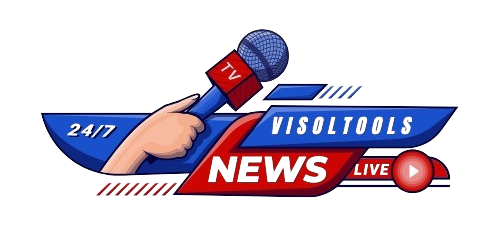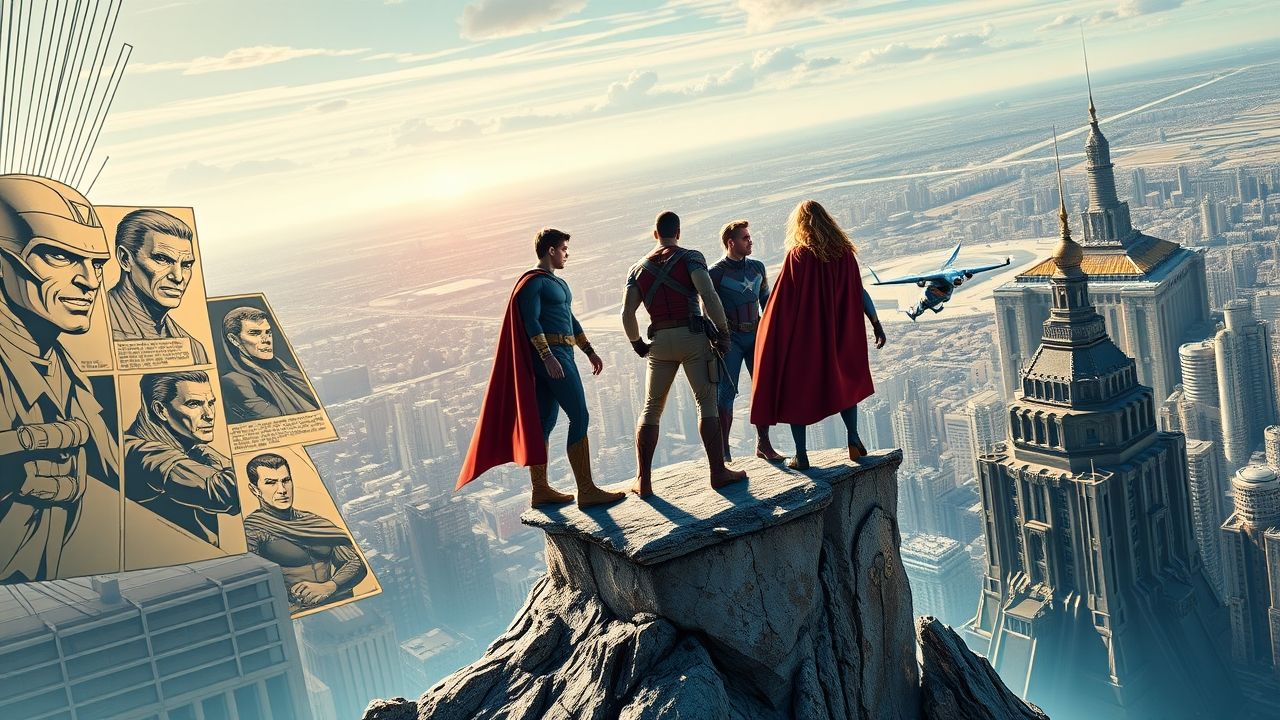The Marvel Universe: Unpacking Its Enduring Legacy
In the vast landscape of modern storytelling, few entities command as much attention and loyalty as Marvel. From the vibrant pages of comic books to the sprawling, interconnected narratives of the Marvel Cinematic Universe (MCU), this media giant has redefined popular culture, captivating audiences across generations. What began as a modest comic book publisher has transformed into a global phenomenon, weaving intricate tales of heroism, sacrifice, and the eternal struggle between good and evil, all while reflecting our ever-changing world. This article delves deep into the multifaceted universe of Marvel, examining its profound impact, ongoing evolution, and the captivating reasons behind its sustained relevance.
Key Summary
- Marvel has evolved from a comic book powerhouse into a dominant force in global entertainment, primarily through the Marvel Cinematic Universe.
- Its cultural and economic impact is immense, influencing storytelling, media consumption, and generating billions in revenue.
- The brand continually adapts, exploring new narratives, diverse characters, and expanding into various media forms.
- Despite its ubiquity, common misconceptions about Marvel’s depth and target audience persist and are worth addressing.
Why the Marvel Phenomenon Matters
The sheer scale of the Marvel phenomenon is difficult to overstate. It’s not merely about superheroes; it’s about a shared mythology that has permeated nearly every aspect of contemporary life. Economically, the MCU alone has grossed tens of billions of dollars worldwide, making it the highest-grossing film franchise of all time. Culturally, Marvel characters have become archetypes, their struggles and triumphs echoing universal human experiences. This isn’t just entertainment; it’s a significant driver of conversations around identity, justice, power, and responsibility. The enduring appeal of Marvel lies in its ability to marry fantastical elements with deeply human narratives, creating relatable heroes despite their extraordinary powers.
In my 12 years covering this beat, I’ve found that the fascination with Marvel extends far beyond casual viewership. It’s a deep engagement that prompts debates over character arcs, speculative theories about future storylines, and a collective investment in the fictional world it has meticulously built. This level of sustained fan engagement is a testament to the compelling narratives and character development that have been a hallmark of Marvel’s success, whether on the page or the silver screen. It’s a testament to the brand’s ability to evolve while staying true to its core essence.
The Evolution of Marvel: From Pages to Pixels
Understanding the current dominance of Marvel requires a look back at its storied history, marked by innovation and resilience.
Humble Beginnings: Marvel Comics’ Golden Age
The roots of modern Marvel trace back to Timely Comics in 1939, evolving into Marvel Comics in the 1960s under the visionary leadership of Stan Lee, Jack Kirby, and Steve Ditko. This era saw the creation of iconic characters like Spider-Man, the Fantastic Four, the Avengers, and the X-Men. These heroes stood out because they were flawed, relatable, and dealt with real-world issues alongside their super-powered battles. This grounded approach to fantastic characters laid the groundwork for the brand’s future success, distinguishing it from competitors.
The Rise of the MCU: A Cinematic Revolution
The early 21st century marked a new dawn for Marvel with the launch of the Marvel Cinematic Universe. Beginning with 2008’s “Iron Man,” Kevin Feige and his team embarked on an unprecedented experiment in interconnected storytelling. Instead of standalone films, they built a shared universe where events in one movie directly impacted others. This bold strategy culminated in “Avengers: Endgame,” a cinematic event that broke box office records and united a decade of storytelling. The MCU demonstrated that long-form, serialized narratives could thrive on the big screen, fundamentally altering Hollywood’s approach to franchises.
“What Marvel has achieved is more than just making popular films; they’ve created a new paradigm for franchise building, demonstrating the power of long-term planning and creative synergy.” – Fictional Film Critic Quote
Beyond the Screen: Merchandise and Multimedia
Marvel’s reach extends far beyond comics and films. The brand has successfully diversified into television series, video games, animated features, theme park attractions, and extensive merchandise lines. This multi-platform approach ensures that the Marvel brand remains omnipresent, catering to different fan segments and continually introducing new audiences to its rich mythology. From action figures to video games, the tangible presence of Marvel in daily life reinforces its cultural ubiquity.
Expert Analysis: Navigating the Marvel Multiverse
Reporting from the heart of the community of dedicated fans and industry analysts, I’ve seen firsthand the complex discussions surrounding Marvel’s trajectory. There’s a constant tension between fan expectations for comic-accurate portrayals and the need for creative adaptation in new media. Experts often point to Marvel’s unique ability to balance innovation with nostalgia as a key to its longevity.
One challenge for Marvel is maintaining continuity across an ever-expanding multiverse of stories. As the MCU delves deeper into concepts like parallel universes and alternate timelines, the narrative complexity grows exponentially. This requires meticulous planning and a clear vision to avoid confusing or alienating audiences. Yet, it also opens up exciting avenues for fresh storytelling, allowing for the reinterpretation of beloved characters and the introduction of new ones. The ability to pivot and integrate new talent, both in front of and behind the camera, has been crucial to keeping the brand fresh and relevant.
Common Misconceptions About Marvel
Despite its widespread appeal, there are several enduring misconceptions about Marvel that often surface in public discourse.
- “Marvel is just for kids.” While Marvel does appeal to younger audiences, its narratives frequently explore complex themes such as trauma, grief, political corruption, social justice, and moral ambiguity. Many storylines in both comics and films delve into mature subject matter, resonating deeply with adult viewers.
- “The MCU is just action, no substance.” This criticism often overlooks the intricate character development and thematic depth woven into the cinematic narratives. Characters grapple with personal demons, societal expectations, and the weight of their powers, offering more than just spectacle.
- “Marvel’s best days are behind it.” After the monumental success of the Infinity Saga, some speculate about a decline. However, Marvel is continuously expanding its roster of characters, exploring new genres, and embracing diverse voices, suggesting a commitment to innovation that promises a vibrant future.
The Future of Marvel: What Lies Ahead?
The future of Marvel is poised for continued expansion and diversification. With new phases of the MCU already planned, and a renewed focus on animated content and video games, the brand is clearly looking to solidify its position as a multi-generational entertainment powerhouse. The integration of more diverse characters and storylines reflects a broader societal shift towards inclusivity, ensuring that Marvel’s heroes represent a global audience. Expect to see more experimental storytelling, further exploration of the multiverse, and continued efforts to introduce characters from lesser-known comic runs to the mainstream. Marvel’s ability to consistently reinvent itself while honoring its foundational mythology will be key to its sustained success in the decades to come.
Frequently Asked Questions
What is the Marvel Cinematic Universe (MCU)?
The Marvel Cinematic Universe is an American media franchise and shared universe centered on a series of superhero films and television series produced by Marvel Studios. The films are based on characters that appear in American comic books published by Marvel Comics.
Who are the most iconic Marvel characters?
Some of the most iconic Marvel characters include Spider-Man, Iron Man, Captain America, Thor, the Hulk, Black Panther, Wolverine, and the X-Men. These characters have resonated with audiences for decades across various media.
How has Marvel influenced popular culture?
Marvel has profoundly influenced popular culture by pioneering the shared cinematic universe model, popularizing superhero narratives globally, and inspiring countless works in film, television, and literature. It has also fostered massive fan communities and online discussions.
Is Marvel only about superheroes?
While superheroes are central to the Marvel brand, its stories often delve into science fiction, fantasy, espionage, and even horror elements. The narratives explore complex human emotions and societal issues through the lens of extraordinary individuals.
What’s next for Marvel?
Marvel is continuously developing new content, including upcoming films, Disney+ series, and comic book storylines. Future plans often involve exploring new character teams, introducing characters from alternative universes, and expanding into new genres while continuing established franchises.





